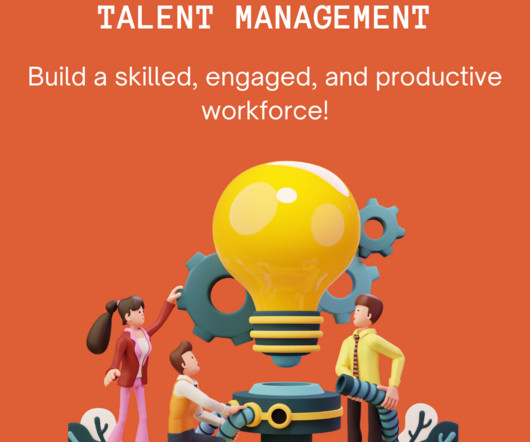Talent Management- What Is It and Why Is It Important?
Engagedly
APRIL 16, 2023
Talent management is a crucial aspect of organizational success that involves a strategic approach to attracting and developing the right talent to meet the company’s objectives. By prioritizing talent acquisition and nurturing employee growth, companies can create a highly-skilled, engaged, and productive workforce.















































Let's personalize your content